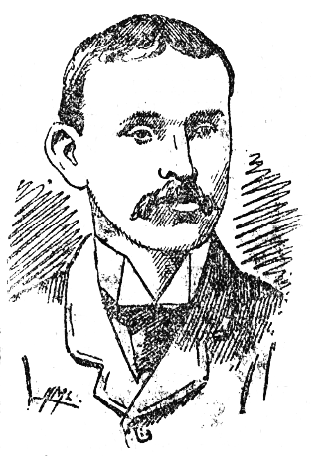|
Jenkin Jones (other)
{{hndis, Jones, Jenkin ...
Jenkin Jones may refer to: * Jenkin Jones (captain) (1623–?), Welsh captain, Puritan cleric and preacher * Jenkin Jones (pastor) (1700?–1742), Welsh Arminian pastor and writer * Jenkin Lloyd Jones (1843–1918), American Unitarian minister * Jenkin Jones (trade unionist) (1859–1929), Welsh trade unionist * Jenkin Lloyd Jones Sr. (died 2004), owner and editor of the ''Tulsa Tribune'' See also * Jenkinjones, West Virginia Jenkinjones is an unincorporated community and coal town in McDowell County, West Virginia, United States. It lies on the western flanks of Stone Ridge near the border with Tazewell County, Virginia. History It is the location of the Pocahont ... [...More Info...] [...Related Items...] OR: [Wikipedia] [Google] [Baidu] |
Jenkin Jones (captain)
Jenkin Jones (born 1623) was a Welsh captain in the army of the Parliamentarians during the English Civil War, and a Puritan cleric and preacher. Life Jones was born in the parish of Llanddetty, Brecknockshire and matriculated at Jesus College, Oxford in 1639. He was a prominent soldier and preacher during the English Civil War, and was married to the niece of Bussy Mansell, a leading Parliamentarian in Glamorgan. Whilst believing that the Baptist principles on who ought to be baptised and how this should take place were correct, he was not an exclusionist like others of the time, and was willing to welcome members of other denominations to communion. He was one of the Approvers named under the Propagation Act 1650, and worked as an itinerant preacher in Brecknockshire and elsewhere, including the Merthyr Tydfil area. In 1657, he became the minister at Llanddetty. After the Restoration Restoration is the act of restoring something to its original state and may refer to: * ... [...More Info...] [...Related Items...] OR: [Wikipedia] [Google] [Baidu] |
Jenkin Jones (pastor)
Jenkin Jones (1700?–1742), was a Welsh Arminian pastor and writer. Biography Jenkin Jones was born about 1700, was son of John Jenkins of Bryngranod, Llanwenog, Cardiganshire, and according to a custom common until lately in the principality, adopted his father's Christian name as his own surname. The father, who is said to have been a blacksmith by trade, owned some land, and when he died, 18 March 1759, he left among other legacies one of £100 to endow Llwynrhydowen, the chapel founded by his son. Jones in 1721 entered the Presbyterian College, Carmarthen, then under Thomas Perrot, a president whose own orthodoxy was unquestioned, but many of whose pupils subsequently drifted into heterodoxy. In 1723 Jones translated into Welsh and saw through the press Matthew Mead's ''Almost Christian tried and cast'', which was published at Carmarthen in 1723. William Spurrell, in his ''History of Carmarthen'', erroneously describes it as the first book printed there. On leaving col ... [...More Info...] [...Related Items...] OR: [Wikipedia] [Google] [Baidu] |
Jenkin Lloyd Jones
Jenkin Lloyd Jones (November 14, 1843 – September 12, 1918) was a Unitarian minister in the United States, and also the uncle of Frank Lloyd Wright. He founded All Souls Unitarian Church in Chicago, Illinois, as well as its community outreach organization, the Abraham Lincoln Centre. A radical modernist, he joined the "Unity Men" and stressed a creedless "ethical basis" as the common element for churches.Excerpt from Robinson, David. ''The Unitarians and the Universalists'', 1985, available at . He tried to move Unitarianism away from a Christian focus and became a prominent pacifist at the time of World War I. He was a founder and long-time editor of ''Unity'', a liberal religious weekly magazine.Tauscher, Cathy and Peter Hughes"Jenkin Lloyd Jones" Early life Jenkin Lloyd Jones was born near Llandysul, a farming town in Cardiganshire, Wales. He was the seventh of ten children born to Richard Lloyd Jones and Mary Thomas James. In 1844, the family emigrated to the United ... [...More Info...] [...Related Items...] OR: [Wikipedia] [Google] [Baidu] |
Jenkin Jones (trade Unionist)
Jenkin Jones (1859 – 7 December 1929) was a Welsh trade unionist. Born in Cadoxton-juxta-Neath in South Wales, Jones was educated until he was sixteen, then served as a pupil-teacher for a year. Although he hoped to become a teacher, his father disapproved of this, and Jones instead completed an apprenticeship as a patternmaker with the Neath Abbey Ironworks Company. He continued to study science, maths and art at evening classes. By this time, the economy was in recession, and he struggled to find work, eventually finding a job manufacturing tin plate. When the economy picked up, he returned to the Neath Abbey Ironworks, becoming a supervisor, and also spending time as a boilermaker. In 1879, he joined the Amalgamated Society of Engineers (ASE). When the next trade depression hit, he was again out of work, and moved to Monmouthshire to find a new role. In 1881, Jones settled in Cardiff, where he continued in his trade. He became increasingly prominent in the ASE, ... [...More Info...] [...Related Items...] OR: [Wikipedia] [Google] [Baidu] |
Jenkin Lloyd Jones Sr
Jenkin, of Franconian origin, is translated in English as " Little John" or more literally "John the little". Forename history Jen/Jean (pronounced "Jon") being a diminutive of Jehan/Jehannes* (John/Johan*) followed by kin/ken meaning little creating Jenkin or Jenken. *(Referred to as Johannes in the Latin and Germanic referring to the Bible name John.) The name "Jenkin" or "Jenken" first use in England is seen as early as 1086 as a diminutive of the English form of John. It was often translated from the Dutch/French as "John the younger" or seen as "John Jenken". The non-diminutive Jehan/Jehannes (pronounced "Jo-han/Jo-han-nes") was also translated into English as John. When Jen/Jean is present, usually given to a younger child, Jehan/Jehannes is listed as "John the elder" but, never translated as "Big John". Confusion can arise when the sire is listed as John, a son is John (the elder) and another son is John (the younger). Today, in English the term John, Senior is used f ... [...More Info...] [...Related Items...] OR: [Wikipedia] [Google] [Baidu] |

